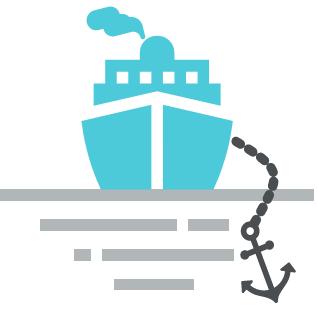Maersk Launches New Weekly Container Service to Ukraine Amid Russian Attacks
Amidst Russia’s intensified rocket attacks on civilian ships and Ukrainian ports, Maersk has taken a bold step by launching a new weekly container service into Ukraine, highlighting the resilience of the country’s seaborne trade. Local reports from Ukrainian news portal Dumskaya confirm that the first vessel under this new service departed from Port Said, Egypt, and is scheduled to arrive in Chornomorsk on October 22. This move demonstrates Maersk’s determination to maintain maritime trade routes to Ukraine, even in the face of growing risks and challenges.
In a statement to clients, Maersk’s Ukraine office emphasized that this new service marks a significant development in improving the efficiency of shipping operations and enhancing customer interaction within the Ukrainian market. However, it remains uncertain whether this new service will replace or complement Maersk’s existing operations, which currently involve four feeder ships running between Chornomorsk and Constanta, Romania. These feeder services are part of Maersk’s effort to maintain regional connections despite the dangerous environment.

Source: Suez Canal Authority
The escalation of Russian attacks on Ukrainian ports, which increasingly target civilian ships and port infrastructure, has raised significant concerns about the future of Ukraine’s maritime trade. These attacks have led to a spike in insurance premiums, making shipping operations in the region more costly and dangerous. Additionally, there has been a noticeable increase in the number of vessels turning off their AIS (Automatic Identification System) signals while navigating Ukrainian waters, a precautionary measure to avoid detection.
Despite these growing risks, shipping companies and industry players remain defiant and continue to operate in the region. A shipowner whose vessel was recently hit by Russian forces told TradeWinds that he remains committed to continuing operations, underscoring a broader sense of determination among shipowners to keep trade flowing through Ukraine. This resilience is shared by other major industry players, including the German shipping giant Hapag-Lloyd, which began container operations in Ukraine last year and has confirmed that it will not halt its services despite the hostile environment.
Similarly, HHLA, the operator of a container terminal in Odesa, announced that their terminal remains fully operational both on land and at sea, even after missile strikes on the region. While other nearby facilities, such as the state-owned Chornomorsk seaport, have suffered significant damage, the will to keep Ukraine’s trade routes open remains strong. This determination to continue maritime trade, despite Russian attacks and logistical difficulties, reflects the resilience of Ukraine’s shipping sector and its importance to the country’s economy.
In conclusion, Maersk’s new weekly container service into Ukraine signals a commitment to maintaining vital maritime trade routes amid ongoing conflict. While the risks are significant, shipping companies, operators, and port authorities are determined to keep Ukraine connected to the global trade network, showcasing the resilience and defiance of Ukraine’s seaborne trade industry.

